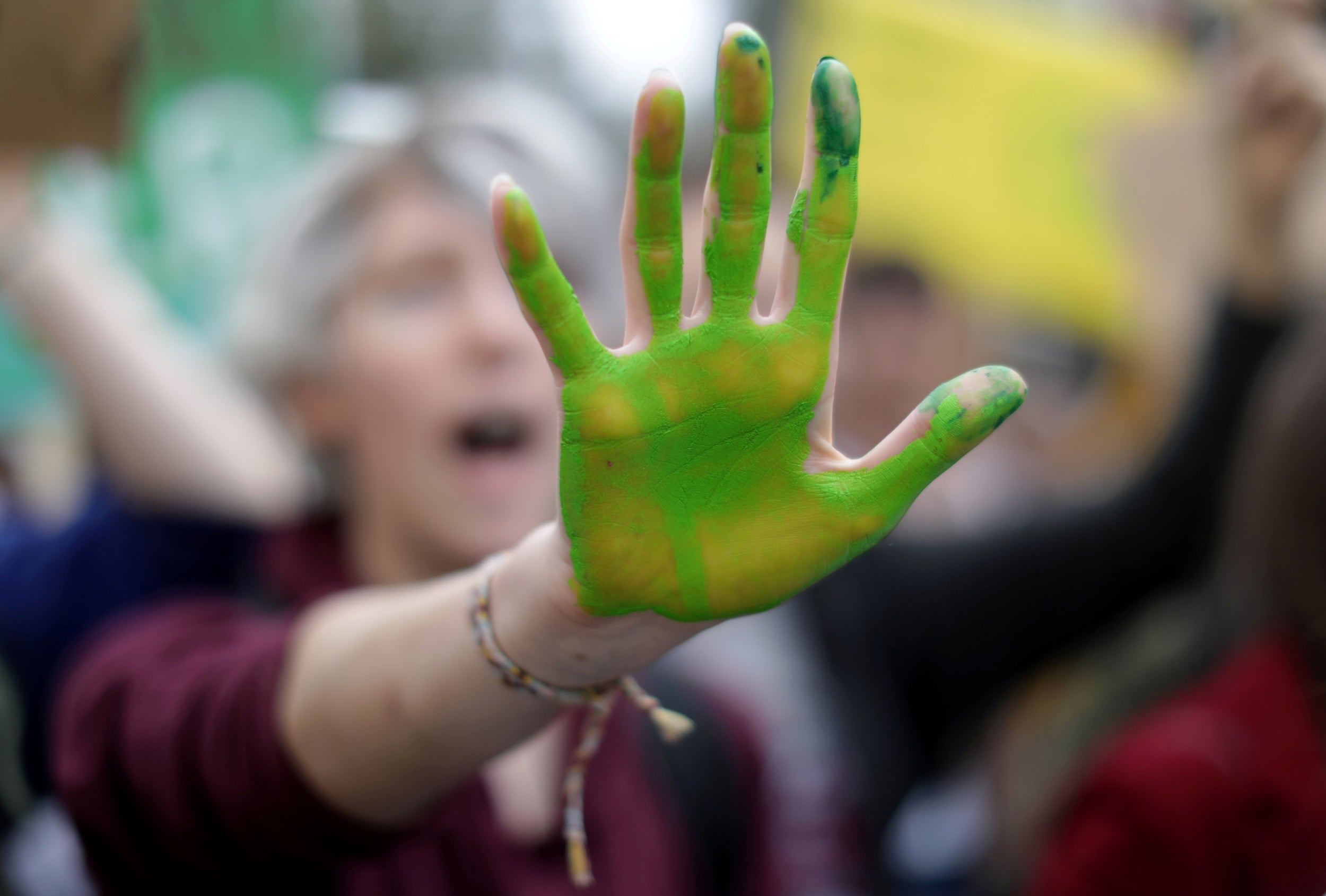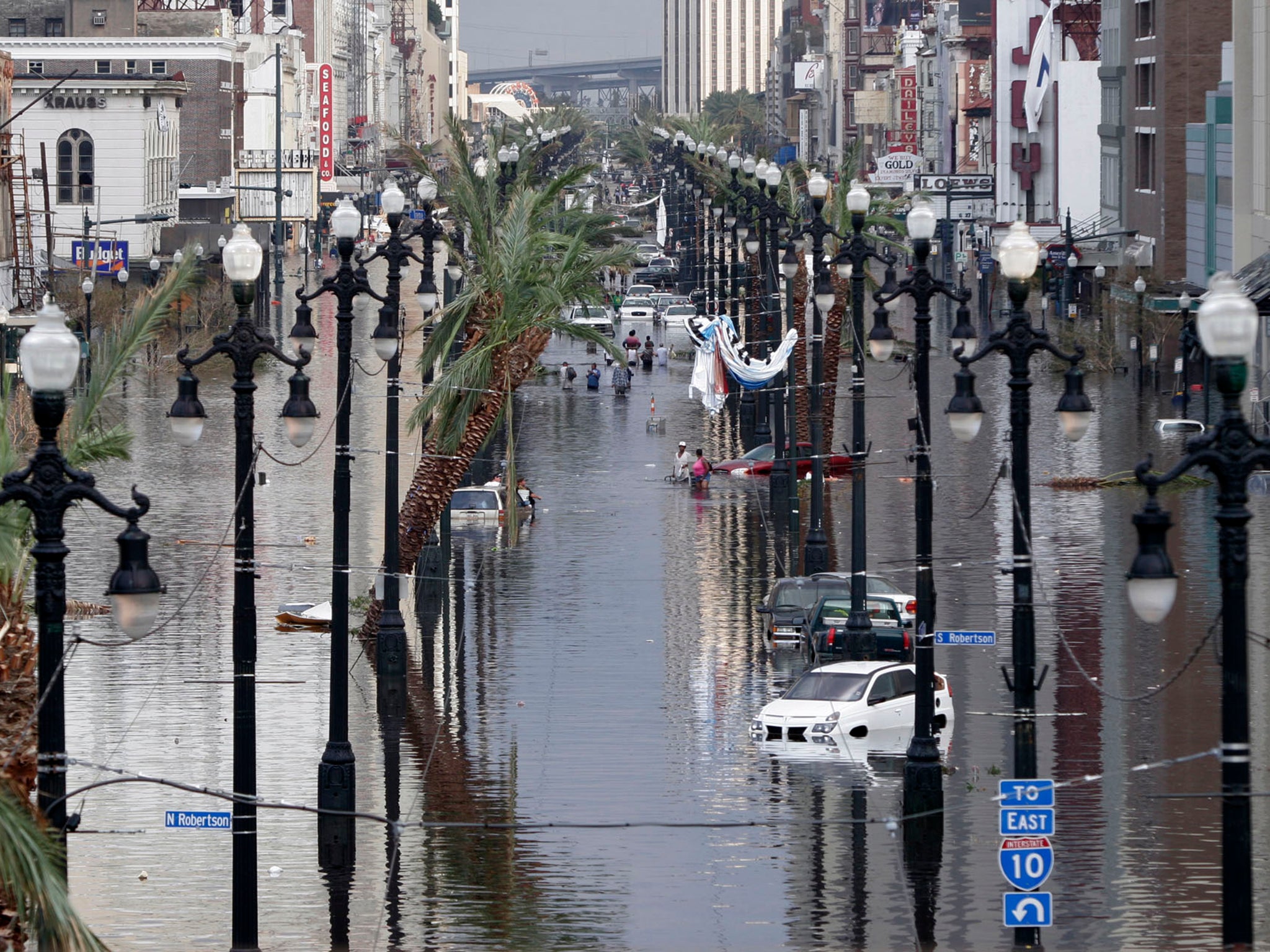The forgotten generation: The elderly are most at risk of suffering from climate change
Global warming activism isn’t just for the young. The elderly want to help out too, says Paula Span

Your support helps us to tell the story
From reproductive rights to climate change to Big Tech, The Independent is on the ground when the story is developing. Whether it's investigating the financials of Elon Musk's pro-Trump PAC or producing our latest documentary, 'The A Word', which shines a light on the American women fighting for reproductive rights, we know how important it is to parse out the facts from the messaging.
At such a critical moment in US history, we need reporters on the ground. Your donation allows us to keep sending journalists to speak to both sides of the story.
The Independent is trusted by Americans across the entire political spectrum. And unlike many other quality news outlets, we choose not to lock Americans out of our reporting and analysis with paywalls. We believe quality journalism should be available to everyone, paid for by those who can afford it.
Your support makes all the difference.When it comes to discussing climate change, older people may have one advantage: they watched it happen.
In the nine northeastern states of the US, for instance, where average winter temperatures climbed 3.8F between 1970 and 2000, they have seen fewer snow-covered days and more shrubs flowering ever earlier.
And they have experienced hotter summers. In New York City, daily summer temperatures at LaGuardia Airport have risen 0.7F per decade since 1970, according to the city’s Panel on Climate Change.
Older Americans are also significant contributors to climate change. A recent study has found that residential energy consumption rises as age increases.
Buildings, and residential buildings in particular, are the world’s largest energy consumers. Two researchers recently analysed US government data on household energy usage that was gathered from 1987 to 2009, involving nearly 30,000 owner-occupied units. Distinct patterns emerged by age.
Usage was lowest among young adults, who typically occupy smaller households, says Hossein Estiri, a computational demographer at Harvard Medical School and an author on the paper.
Consumption rose rapidly among those aged 30 to 54 – “the peak of having kids and larger houses”, he notes – then stabilised when people reached their sixties. But “after 70, it goes up and it keeps going up”, Estiri says.
The trend persisted when the researchers controlled for income and housing types, but it varied by geography. When the researchers looked at climate, they found that “energy consumption in warmer regions becomes really elevated for the older group”.
But in a world that is both warming and greying, older adults suffer disproportionately from climate change
Why do older people use more juice? The study could not provide explanations, but air-conditioning might be a cause, Estiri speculates, and older people may not be able to maintain the energy efficiency of their homes as well as younger people. Estiri adds: “Maybe their appliances are old and less efficient. All of these could contribute.”
The climate change story has plenty of villains; the elderly are hardly wrecking the environment on their own. Still, the demographic trends do not bode well.
“There will be more warm days in most areas because of climate change,” Estiri says. “There will be more energy use by the older group. And because of the population ageing, there will be more people in that age group. These trends will amplify each other.”
But in a world that is both warming and greying, older adults suffer disproportionately from climate change.
Consider extreme heat. “It puts a stress on anybody’s body, but if you’re old and frail, it’s harder,” says Patrick Kinney, who studies the effects of climate on health at the Boston University School of Public Health. In addition, he says, “certain medications older people take, for blood pressure or cholesterol, reduce the body’s ability to thermo-regulate.”
The risk of heatstroke, which is potentially fatal, increases because older adults may be less mobile and thus less able to reach cooler locations in a heatwave. They may also be socially isolated and less able to seek help.
Impaired cognitive function may also make it harder for the elderly to find solutions, Kinney says. The air pollution often associated with heatwaves intensifies the problems. The Chicago heatwave of July 1995, for instance, caused 514 heat-related deaths; those older than 65 accounted for 72 per cent of the fatalities.
Humans can adapt to these extremes, of course. Kinney and his colleagues found that the risk of dying from heat in New York City declined 65 per cent from the early 1970s to 2006 as the proportion of households with air conditioning surged. But air conditioners also contribute to climate change.
Any particular episode of extreme weather may be linked only loosely to climate change. But the overall relationship is clear: aside from heatwaves, climate change will bring other kinds of extreme weather and disasters. Elderly people will be disproportionately affected.
“The mortality is always higher among older people,” says Lisa Brown, director of the Risk and Resilience Research Lab at Palo Alto University. “They can’t get out of harm’s way fast enough.”
Nearly half of the individuals who died during Hurricane Katrina in 2005 were 75 or older. When Hurricane Sandy hit New York in 2012, almost half of those who died were over 65.

Blackouts have proved particularly dangerous. Older people may become unable to use power scooters and wheelchairs, refrigerate medications or summon help. After Sandy, many were trapped in high-rise apartments without functioning elevators.
An unhealthy 75-year-old in a care facility may fare better than a healthy 75-year-old living on her own, Brown points out. The facility most likely has a generator and stockpiles of food and water; few individuals do.
But in California, Pacific Gas and Electric recently announced that it would consider turning off transmission lines when deemed necessary to prevent wildfires.
“If the power goes off for three or four days, people here are not prepared,” Brown says. She thinks older people – indeed, all people – should always have enough food and water to last five to seven days and a plan to evacuate or seek help in emergencies.
Perhaps older Americans, as disproportionate contributors to and victims of climate change, could play an additional role, as active participants in the global campaign to mitigate the damage.
A decade ago, Karl Pillemer, a gerontologist at Cornell University, began exploring environmental volunteerism among older adults. He found that most environmental organisations had not recruited older members or adapted to support their participation, leaving a major resource untapped. He established a programme called Rise, for Retirees in Service to the Environment, to prepare older volunteers for leadership roles in environmental stewardship.
There’s a common notion that older adults care less about climate change than young adults. But that holds true only for Republicans, a Pew Research Centre survey found last year, and may be less a result of age than of political affiliation.
Millennial and Gen X Republicans were more likely than boomers to say that they saw the effects of climate change and that the US government was doing too little to reduce it. But among Democrats, who were far more concerned about climate change and energy policy than Republicans were, the pollsters found only modest differences by age.
Older volunteers would benefit by working to halt climate change, Pillemer says: “Participants gain fulfilment from activities that have results they will not be here to enjoy.”
Later-in-life or “generative” volunteerism has been shown to improve health and psychological wellbeing.
“If the boomers could be motivated to take this on as their defining generational legacy, they could have incredible impact,” Pillemer says. “With their huge numbers, they could potentially do something about it.”
© New York Times
Join our commenting forum
Join thought-provoking conversations, follow other Independent readers and see their replies
Comments